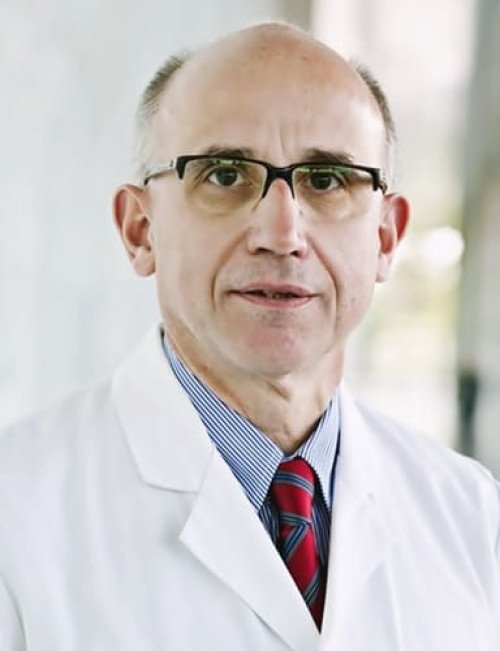The Department of Oncology and Palliative Medicine is critical in cancer patient care and treatment. This department combines the ideas of oncology, which focuses on cancer therapy, with palliative care, which tries to enhance the quality of life for patients with severe, chronic, and life-threatening diseases. Combining these two disciplines means that patients get complete therapy that tackles their medical condition while meeting their physical, emotional, and psychological requirements.
The Role of Oncology in Cancer Treatment
Oncology is the area of medicine that focuses on cancer diagnosis, treatment, and research. The Department of Oncology is staffed by professionals, including medical oncologists, radiation oncologists, surgical oncologists, and hematologists, who collaborate to offer interdisciplinary cancer treatment.
Diagnoses and Staging
The first step in cancer therapy is a proper diagnosis and staging. This includes a variety of diagnostic techniques, such as CT scans, MRIs, PET scans, biopsies, and laboratory testing. Cancer staging, which measures the extent of the disease's spread, is critical in designing an effective treatment strategy.
Treatment Modalities
The Department of Oncology provides several therapy options customized to the kind and stage of cancer. This includes:
Chemotherapy: Using strong medications destroys or prevents cancer cells from developing.
Radiation Therapy: High-energy radiation targets and eliminates cancer cells while causing little harm to surrounding healthy tissue.
Surgery: The physical removal of tumors or damaged tissues, usually in conjunction with other therapies.
Targeted Therapy: Drugs or other chemicals that inhibit cancer growth and spread by interfering with particular molecules involved in tumor development and progression.
Immunotherapy: Treatments that strengthen the body's natural defenses against cancer by increasing the immune system's capacity to identify and target cancer cells.
Hormone Therapy: Primarily used to treat hormone-sensitive malignancies such as breast and prostate cancer.
Research and Clinical Trials
Research and clinical trials are another busy department of the Department of Oncology.
These studies provide patients with early access to cutting-edge treatments and therapies. Participation in clinical trials may be critical in cancer care, giving hope to patients who have exhausted traditional therapy choices.
Palliative Medicine
Palliative care is a specialized field that focuses on reducing the symptoms and stress of a serious medical condition. The goal is to improve the patient and their family's quality of life. All phases of serious disease may be fit for palliative care, which can even be combined with curative therapy.
Symptom Management
Palliative care focuses on treating symptoms, including pain, nausea, exhaustion, and shortness of breath. This therapy is tailored to each patient's requirements and is designed to reduce pain and enhance everyday functioning.
Emotional and Psychological Support
Living with a significant disease may have a profound emotional impact on patients and their families. The Department of Oncology and Palliative Medicine offers psychological assistance, counseling, and tools to help patients deal with the emotional elements of their disease. This assistance extends to family members, assisting them in navigating the difficulties of caring and the emotional load of a loved one's sickness.
Advanced Care Planning
Palliative medicine also includes assisting patients with advance care planning, which involves discussing and recording their preferences for end-of-life care. This guarantees that patients' wishes are honored and they get the care they want throughout their dying days.
Coordination of Care
Palliative care is a team-based strategy that coordinates treatment among healthcare practitioners. This guarantees that all parts of a patient's care, including medical treatment, emotional support, and practical assistance, are handled wholly and consistently.
Support for Families
Palliative medicine emphasizes the significance of assisting families in caring for a loved one with an incurable disease. This assistance includes disease knowledge, caring advice, and respite care services to provide families with a break from their caregiving obligations.
Integrating oncology and palliative medicine
Integrating oncology with palliative medicine promotes a more comprehensive approach to cancer therapy. By combining oncologists' expertise with palliative medicine specialists' supportive care, the department ensures that patients receive thorough care that addresses both the physical aspects of cancer and the emotional, psychological, and social challenges that come with it.
Early Palliative Care
Studies have proven that early integration of palliative care with cancer therapy enhances patient outcomes, such as symptom control, quality of life, and survival time. Early palliative care enables patients and families to make better choices regarding treatment and end-of-life care.
Continuity of care.
The Department of Oncology and Palliative Medicine offers comprehensive care throughout the cancer journey, from diagnosis to treatment to survivorship or end-of-life care. This continuity guarantees that patients are supported throughout their illness and that their care requirements are addressed, regardless of the stage of their treatment.
Personalized Care Plans
Patients' treatment plans are tailored to their requirements, preferences, and objectives. This tailored approach provides more flexibility in treatment and care, ensuring patients get the most suitable and successful therapies for their illnesses.
Holistic Approach
The integrative method of merging cancer and palliative care guarantees that all areas of a patient's well-being are addressed. This involves treating medical diseases, emotional and psychological well-being, social support, and spiritual requirements.
Patient and Family Empowerment
The department empowers patients and their families by providing them with the knowledge, tools, and support they need to make educated choices about their health care This empowerment promotes patient happiness and control over their disease and treatment.
👉 Contact us for further information and receive a complimentary consultation.
Oncology focuses on diagnosing and treating cancer, using methods such as chemotherapy, radiation therapy, surgery, and targeted therapies. On the other hand, palliative medicine aims to improve the quality of life for patients with severe illnesses by managing symptoms, providing emotional and psychological support, and helping with advanced care planning. While oncology targets the disease, palliative medicine focuses on the patient’s well-being and can be provided alongside curative treatments.
Palliative care can be started at any stage of a severe illness, not just at the end of life. It is beneficial to begin palliative care early in treatment to manage symptoms, reduce discomfort, and provide emotional support. Early palliative care has been shown to improve the quality of life and, in some cases, even extend survival.
Patients can receive both oncology treatment and palliative care simultaneously. This combined approach ensures that while the cancer is being treated, the patient’s symptoms and overall quality of life are also addressed. Palliative care complements oncology treatment by focusing on the patient’s comfort and well-being.
Palliative care plays a significant role in end-of-life care by relieving pain and other distressing symptoms, offering emotional and psychological support, and assisting with advance care planning. It ensures that patients spend their final days in comfort and dignity, with their wishes and preferences respected. Palliative care also supports families during this challenging time, providing guidance and bereavement support.
The department supports families by providing education about the illness, guidance on caregiving, and emotional and psychological support. Palliative care teams work closely with families to ensure they have the resources and assistance to care for their loved ones. Additionally, the department offers respite care, allowing family caregivers to take breaks and recharge.
Experience the difference that expertise and compassion can make. Meet our exceptional team of experienced doctors, and trust us to provide you with the best in healthcare.

Oncology and Palliative medicine
Chief Physician specializing in Advanced Palliative Medicine
Bonn


.webp)
 (1).webp)

.webp)
 (1).webp)


.webp)
 (1).webp)

.webp)
 (1).webp)
